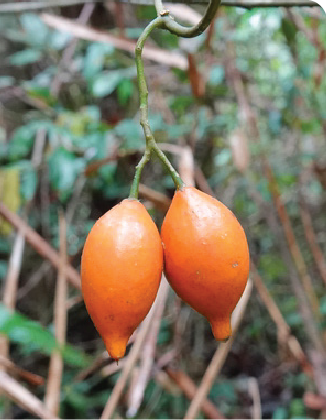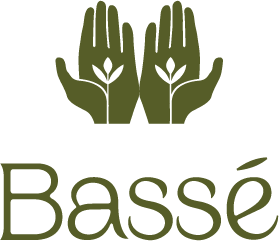Blog

Healing the Nervous System Naturally with Ibogaine Therapy
The nervous system is the command center of the human body. It governs everything from our ability to move and breathe to how we process emotions and recover from stress. When it’s functioning optimally, we feel resilient, grounded, and balanced. But for many people—especially those struggling with addiction, PTSD, or chronic pain—the nervous system is in a state of constant dysregulation, stuck in survival mode. This is why more people are turning to alternative treatments for nervous system health, such as Ibogaine therapy.
Traditional medical and clinical treatments for these conditions often fall short, emphasizing symptom management rather than addressing the root cause and fostering true healing. This is where Ibogaine therapy offers a groundbreaking alternative. Derived from the Tabernanthe iboga plant, Ibogaine has been shown to reset the nervous system, promote neuroplasticity, and support deep trauma resolution—all of which are critical for long-term healing.
But how exactly does Ibogaine work? And what does the research say about its effects on the nervous system? Let’s explore the science behind this powerful plant medicine and its role in nervous system regulation.
Why the Nervous System Holds the Key to Healing
Our nervous system is constantly working to keep us safe—physically, mentally, and emotionally. It responds to our environment through different pathways, adjusting our physiological state based on perceived safety or danger.
- The sympathetic nervous system (SNS) triggers the “fight or flight” response, preparing the body to face or escape a threat.
- The parasympathetic nervous system (PNS), particularly the ventral vagal branch, supports relaxation, social engagement, digestion, and recovery.
- The dorsal vagal system (part of the PNS) is responsible for shutdown or hypoarousal, a survival mechanism that can lead to dissociation, fatigue, numbness, or feelings of helplessness when stress becomes overwhelming.
When someone experiences chronic stress, trauma, or substance use, their nervous system can become dysregulated—stuck in hyperarousal (fight-or-flight) or hypoarousal (shutdown, dissociation, or numbness). Over time, this dysregulation disrupts emotional balance, cognitive function, and physical health, contributing to conditions like anxiety, depression, addiction, and chronic pain.
To heal, we must restore nervous system balance, allowing for greater flexibility between states of activation and relaxation. This is precisely what Ibogaine therapy appears to do—helping the nervous system “reset” by breaking repetitive stress-response patterns and restoring equilibrium.
The Science Behind How Ibogaine Resets the Nervous System
“One of the most remarkable aspects of Ibogaine and nervous system regulation is its ability to interrupt deeply ingrained patterns in the brain and body. Unlike traditional treatments that work gradually over time—or fail to create lasting change—Ibogaine has an immediate and profound effect, facilitating a neurological ‘reset.’ This is why Ibogaine treatment is often described as ’10 years of therapy in 12 hours.’
Breaking Stress and Addiction Loops
Ibogaine interacts with multiple neurotransmitter systems, particularly glutamate, serotonin, and dopamine—all of which play a role in mood, pain perception, and addiction. One research study suggests that Ibogaine therapy for addiction significantly reduces cravings and withdrawal symptoms in opioid-dependent individuals, and another suggests that Ibogaine interrupts addictive behaviors, and enhances emotional processing, giving individuals a unique window of clarity to make lasting changes.
Many clients report that after a single session of Ibogaine therapy, they feel as if their nervous system has been “rebooted,” allowing them to engage with the world in a new way. One client recovering from chronic opioid addiction, found that Ibogaine “gave me a clear mind and a fresh start—something I never thought possible.”
Encouraging Neuroplasticity
Neuroplasticity—the brain’s ability to literally rewire and form new connections—is critical for promoting change and healing. Ibogaine promotes neuroplasticity by increasing the release of brain-derived neurotrophic factor (BDNF) and glial cell line-derived neurotrophic factor (GDNF). These proteins help regenerate neurons, repair damage caused by addiction, and create new, healthier pathways for emotional regulation and stress response, facilitating rapid trauma healing. Evidence that Ibogaine stimulates the growth of new neural connections makes it a promising therapy for neurodegenerative diseases and cognitive decline too.
Healing the nervous system naturally isn’t just about symptom relief—it’s about creating lasting, structural change in how the brain and body respond to stress. Ibogaine therapy goes beyond temporary relief, promoting long-term changes in nervous system regulation and restoring balance for sustainable healing.
Processing and Releasing Trauma
Another key aspect of Ibogaine therapy benefits for trauma is its unique psychoactive properties. While under the influence of Ibogaine, individuals often experience deep, visionary states that allow them to revisit past traumas from a new, detached perspective. Instead of reliving painful experiences in a way that retraumatizes them, they’re able to process these memories in a way that brings resolution by way of emotional integration. A growing number of studies highlight Ibogaine’s role in reducing symptoms of PTSD, depression, and anxiety – especially in veterans and those with traumatic brain injuries (TBIs) by helping the nervous system return to a state of balance.
For those suffering from PTSD, chronic anxiety, or unresolved grief, plant medicine for stress recovery can be a life-changing experience. One client who had struggled with PTSD for years described their Ibogaine treatment as “the first time I felt my body truly let go of the fear I had been carrying for decades.” Another client, a veteran struggling with PTSD, described their experience as “the first time my nervous system felt safe.” A third client, dealing with debilitating anxiety, reported that after Ibogaine therapy, “I finally feel like I have control over my body and mind again.”
Ibogaine therapy is not just an abstract scientific concept—it’s changing lives.
Integrating Healing: The Role of Supportive Therapies
There’s no doubt that Ibogaine therapy can be a powerful catalyst for change. However, while Ibogaine provides a nervous system reset, reinforcing new patterns through integrative therapies is essential for sustaining long-term regulation and supporting lasting healing from PTSD, chronic anxiety, and addiction.
Body-Based Therapies
Since trauma is stored in the body, somatic therapies that specifically support nervous system regulation can help reinforce the shifts that occur during Ibogaine treatment. These include therapies such as Somatic Experiencing, Polyvagal-informed yoga, Bioenergetics, NeuroAffective Touch, and others. These practices teach the body to release stored tension in titrated amounts, gradually increasing the capacity to witness and experience sensations without overwhelm. This results in greater resilience to stress—without bypassing the deeper healing process.
Mindfulness and Breathwork
Mindfulness-based techniques like breathwork, meditation, and grounding exercises play a crucial role in maintaining nervous system balance after Ibogaine therapy. These practices help maintain nervous system regulation by enhancing witnessing capacity, allowing individuals to observe emotions and sensations without becoming overwhelmed or reactive.
- Breathwork techniques can activate the parasympathetic nervous system, promoting relaxation and reducing hyperarousal.
- Mindfulness meditation fosters greater interoception (awareness of internal bodily sensations), helping individuals reconnect with their bodies and regulate emotions more effectively.
- Grounding exercises—such as walking barefoot on natural surfaces (earthing), orienting to the environment, or engaging the senses through touch and smell—help anchor the nervous system in the present moment, reducing dissociation and hypervigilance.
When practiced consistently, these techniques rewire the stress response, strengthen self-regulation, and enhance the long-term benefits of Ibogaine therapy.
Nutrition and Lifestyle Changes
The nervous system relies on a foundation of proper nutrition, movement, and sleep to function optimally. When used alongside alternative treatments for nervous system health, lifestyle changes can significantly enhance and sustain the benefits of Ibogaine therapy. A post-Ibogaine lifestyle that prioritizes anti-inflammatory foods, hydration, and daily movement can significantly enhance and sustain the benefits of treatment.
- Anti-inflammatory foods help reduce neuroinflammation, which is often heightened in individuals with PTSD, addiction, and chronic stress.
- Hydration is critical for detoxification and cellular repair, especially following an intensive neurobiological reset like Ibogaine therapy.
- Daily gentle movement, such as yoga, tai chi, or somatic-based exercises, supports vagal tone (enhancing parasympathetic activity) and prevents the body from slipping back into chronic tension patterns.
- Sleep hygiene practices help consolidate the neuroplastic changes initiated by Ibogaine, allowing the nervous system to repair and integrate new patterns.
By incorporating these holistic lifestyle strategies, individuals can prolong the therapeutic effects of Ibogaine therapy and create a sustainable foundation for nervous system regulation and emotional well-being. [Include a sentence here about how a Bassé treatment incorporates all of these elements.]
A New Era of Healing
The future of alternative treatments for nervous system health is here, and Ibogaine is leading the way. Unlike conventional medications that only manage symptoms, Ibogaine therapy works by resetting the nervous system at its core, allowing for deep and lasting transformation.
If you or a loved one is struggling with PTSD, addiction, or chronic nervous system dysregulation, Ibogaine therapy may offer the breakthrough you’ve been searching for.
Are you ready to take the next step in healing the nervous system naturally? Explore our blogs to learn more about Ibogaine therapy benefits for trauma, addiction, and chronic pain recovery, or contact us to discuss how Ibogaine therapy at Bassé can support your healing. Start your journey toward recovery today!
